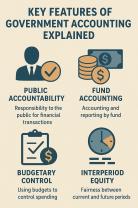What to expect from your financial advisor?
When working with a financial advisor, it's essential to establish clear expectations and understand the role they play in helping you achieve your financial goals. Here are some key expectations you can have from your financial advisor:
Goal Assessment:
- Your financial advisor should help you articulate and prioritize your financial goals, whether it's retirement planning, saving for education, buying a home, or other objectives.
Financial Planning:
- Expect your advisor to create a comprehensive financial plan that considers your current financial situation, income, expenses, assets, and liabilities.
Risk Tolerance Assessment:
- Your financial advisor should assess your risk tolerance and investment preferences to tailor recommendations that align with your comfort level and financial objectives.
Investment Advice:
- Receive guidance on suitable investment strategies based on your goals and risk tolerance. This may include recommendations for asset allocation, specific investment products, and diversification.
Regular Reviews and Updates:
- Expect periodic reviews of your financial plan and investment portfolio. As your life circumstances change, your advisor should update and adjust the plan accordingly.
Education and Explanation:
- Your financial advisor should help you understand complex financial concepts, investment options, and the implications of various financial decisions.
Cost Transparency:
- Your advisor should clearly explain their fee structure, including any commissions, management fees, or other charges associated with their services. Transparency is crucial for building trust.
Risk Management:
- Your advisor should help you assess and manage risks in your financial life, including insurance needs for health, life, disability, and other potential risks.
Tax Efficiency:
- Expect guidance on tax-efficient strategies to minimize your tax liability. This may include advice on retirement accounts, tax-advantaged investments, and other tax planning opportunities.
Estate Planning Assistance:
- If applicable, your financial advisor should discuss and assist with basic estate planning considerations, such as wills, trusts, and beneficiary designations.
Communication and Accessibility:
- Expect regular communication and easy accessibility to your advisor. Clear lines of communication are essential for addressing questions, concerns, and changes in your financial situation.
Compliance and Ethics:
- Your financial advisor should operate within ethical and legal standards. They should abide by industry regulations and act in your best interest, adhering to a fiduciary standard if applicable.
Customization:
- Your financial plan and investment strategy should be tailored to your unique circumstances, taking into account your individual goals, preferences, and constraints.
Long-Term Relationship:
- Establishing a long-term relationship with your financial advisor is ideal. Financial planning is an ongoing process that may require adjustments as your life evolves.
It's important to note that expectations may vary based on the type of financial advisor you choose (e.g., fee-only, fee-based, or commission-based) and the specific services they offer. Before engaging a financial advisor, it's advisable to conduct thorough due diligence, understand their approach, and ensure their values align with your financial goals and principles.
What are the primary responsibilities of a financial advisor?
A financial advisor plays a crucial role in guiding individuals and families towards their financial goals. Their responsibilities can be categorized into three main areas:
1. Financial Planning:
- Gathering information: Assessing your current financial situation, including income, expenses, assets, liabilities, and financial goals.
- Analyzing your financial health: Identifying strengths and weaknesses in your financial situation and potential areas for improvement.
- Developing a personalized financial plan: Creating a roadmap to achieve your financial goals, considering your risk tolerance, time horizon, and investment preferences.
- Reviewing and updating your financial plan: Regularly revisiting your plan to ensure it remains aligned with your changing circumstances and goals.
2. Investment Management:
- Investment research and selection: Identifying suitable investments based on your risk tolerance, time horizon, and financial objectives.
- Portfolio construction: Building a diversified portfolio of investments to mitigate risk and maximize potential returns.
- Portfolio monitoring and rebalancing: Regularly evaluating your portfolio performance and making adjustments to maintain desired asset allocation.
- Investment advice and recommendations: Providing guidance on investment strategies and decisions based on market trends and your individual circumstances.
3. Ongoing Support:
- Regular communication: Maintaining ongoing communication with you to discuss progress towards your goals, answer questions, and address concerns.
- Tax planning and advice: Offering strategies to minimize your tax liabilities and maximize benefits.
- Estate planning: Assisting you in planning for the distribution of your assets after your passing and ensuring your wishes are met.
- Retirement planning: Helping you plan for a secure and comfortable retirement by estimating future income needs and developing strategies to fulfill them.
Additional Services:
Many financial advisors offer additional services beyond the core responsibilities mentioned above, such as:
- Budgeting and debt management: Helping you create a budget, manage debt effectively, and develop a plan to become debt-free.
- Insurance planning: Reviewing your existing coverage and recommending appropriate insurance plans to protect your assets and loved ones.
- Education planning: Assisting you in saving for your children's education and navigating the college funding process.
Benefits of Working with a Financial Advisor:
- Expertise and knowledge: Gain access to professional guidance and informed financial decisions.
- Objectivity: Receive unbiased advice free from emotional or personal biases.
- Time savings: Delegate financial tasks and free up your time for other priorities.
- Peace of mind: Achieve financial security and confidence in your future.
Investing in a good financial advisor can be a transformative decision, putting you on the path to achieving your financial goals and securing a brighter future.













